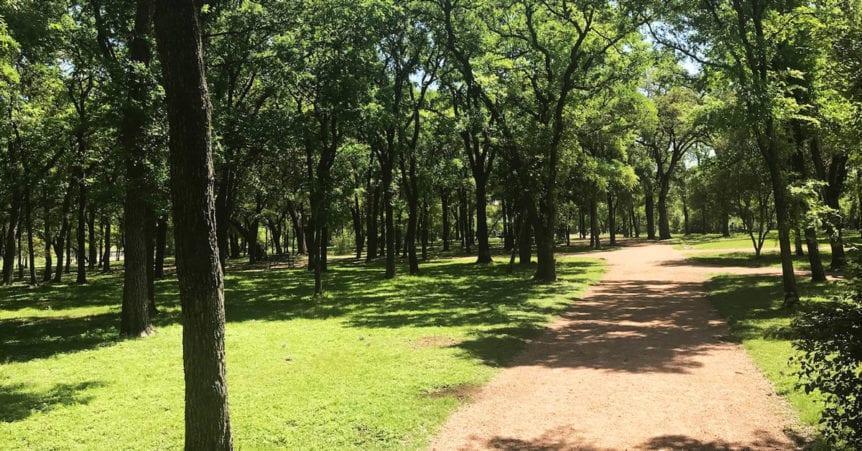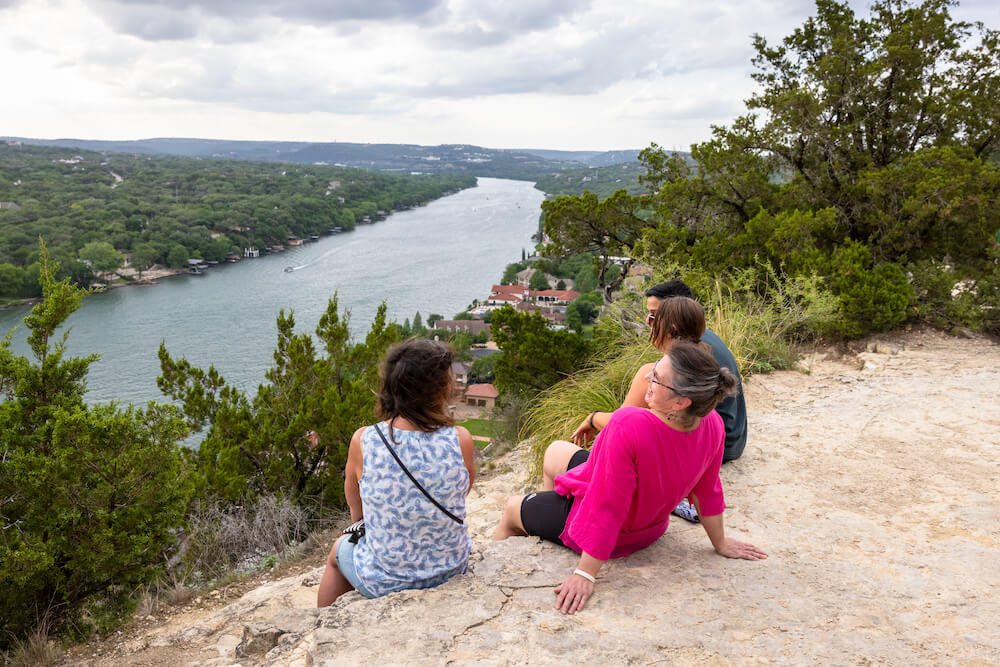Hey there!
COVID-19 has changed how we do things, and your safety is our priority. Please keep social distancing best practices in mind if you choose to visit parks, trails and green spaces. Thanks, y'all!
Written by Thomas Visco, Advocacy Manager at Austin Parks Foundation
Last year, Austin City Council approved the Austin Strategic Mobility Plan (ASMP). This set an ambitious mode shift goal of having 50% of Austinites commuting without a single occupancy vehicle by 2039. This goal will require Austin to make major investments in transit, trails, bike lanes and sidewalks.
On March 9th, hundreds of Austinites joined elected officials, Capital Metro staff, and civic leaders for a rally at City Hall in support of Project Connect, Capital Metro’s long-term vision for a robust transit system that includes two light rail lines.
SXSW Canceled March 13th, 2020
On March 13th, just four days later, Mayor Adler ordered SXSW to cancel it’s annual gathering. COVID-19 and its dire impacts had arrived in Austin. Like in many other cities, a lot changed overnight.
For many, including Austin Parks Foundation (APF), the March 9th rally and joint meeting between Austin City Council and the Capital Metro Board was a major milestone in advancing this plan. The ASMP envisions a complete transportation system, where transit, cars, bikes, and legs all work together to make Austin a sustainable city that can meet its ambitious Climate Change Goals.
For APF, this is incredibly important, as Austin’s parks system can and should be accessible to all, regardless of circumstance. Making parks more accessible for more people requires the type of high-capacity transit system Capital Metro envisioned with Project Connect.
Austin's Trails Connect People + Places
Furthermore, our urban trails system is a key piece of connective tissue, interlacing parks with jobs centers, entertainment, and commercial activities through safe, naturally beautiful corridors. Project Connect and the ASMP promise to bring all of these pieces together.
After years of hardwork and activism, Austin’s civic leaders were poised to announce the most sweeping, pro-transit, pro-environment bond package to ever grace the Austin ballot. A major step forward to achieving our community’s transportation modeshift goals.
Even with COVID-19 ravaging Austin’s public health and economy, we still see near daily reminders of the continued impact of climate change on our planet. Shifting our transportation system to greener methods is key to stemming the rising tide of climate change.
More Trail Use, Less Carbon Emissions
Austin’s Strategic Mobility Plan envisions more transit ridership, but it also calls for doubling bike commutes, and a tripling walking commutes. These modes are critical to reducing our carbon emissions. Moreover, Austin has already adopted plans to achieve these goals, namely the Bicycle Master Plan, Urban Trails Master Plan, and the Sidewalk Master Plan.
Fully funding the Urban Trails Master Plan’s tier 1 projects, which will create an interlaced system of trails connecting parks, jobs centers, and homes, will only cost $123 million dollars, roughly 1% of the nearly $10 billion dollar Project Connect plan.
It’s clear that Austin needs both of these plans, Project Connect and the Urban Trails Master Plan, fully funded if we are to achieve our shared goals.
Trails Essential When Social Distancing
As Austinites adjust to our new, socially distanced reality, we’ve seen usage of bike lanes, sidewalks, and urban trails spike. There’s never been a better time to invest in this vital infrastructure, which has been serving many of us well during these unprecedented days.
Years from now, when looking back on COVID-19, we’ll see this time as a momentary pause in Austin’s steady progress. Some of our larger ambitions may not be realized this year. But our city must keep an eye on the future we want: a healthier, more environmentally friendly city that is safe and affordable for all.
Supporting those goals by fully funding Austin’s bicycle and urban trails plans is the most cost-effective way to keep Austin marching towards that brighter future.




